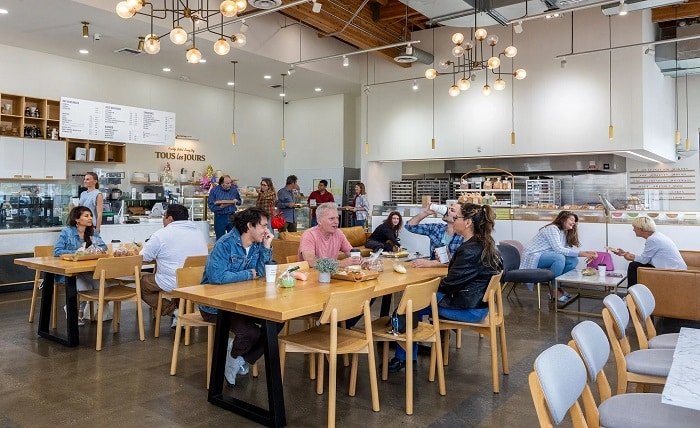Exploring the Versatility of Tous les: A Deep Dive into Its Usage and Significance

“Tous les” is a French phrase that translates to “all the” in English. It is used to denote inclusivity or entirety in a given context. This blog post explores the different ways in which “tous les” is utilized across various facets of life, from language and literature to cultural expressions and daily communication.
Tous les in Daily Conversations
Every day, “tous les” makes its appearance in countless French conversations. Whether discussing “tous les jours” (every day) or “tous les chemins” (all the paths), the phrase helps to generalize or specify aspects of daily life. This section will explore its usage in common phrases and the subtle nuances that can change its meaning depending on the context.
Tous les in Literature
In French literature, “tous les” often appears to emphasize the universality of certain themes or settings. Authors may use it to enhance the relatability of their narratives, discussing “tous les hommes” (all men) or “tous les sentiments” (all feelings), thereby broadening their appeal. We will analyze how different authors utilize this phrase to deepen their literary works.
Tous les in French Cuisine
French cuisine, known for its diversity and refinement, uses “tous les” to describe a variety of dishes or ingredients, such as “tous les fromages” (all the cheeses) and “tous les vins” (all the wines). This section will delve into how this phrase enriches the language of food and influences culinary practices in France.
Tous les in Educational Settings
Educational contexts frequently employ “tous les” to discuss collective resources or schedules, like “tous les cours” (all the courses) and “tous les étudiants” (all the students). Here, we will explore its impact on communication within academic institutions and how it facilitates a more inclusive environment.
Tous les in Business and Marketing
In the realm of business and marketing, “tous les” is pivotal in campaigns and strategic communications, signifying comprehensive services or products, as in “tous les clients” (all the clients) and “tous les marchés” (all the markets). This section examines its role in creating broad-reaching messages that aim to engage diverse audiences.
Tous les in French Law
Legal documents and discussions often reference “tous les cas” (all cases) or “tous les droits” (all rights), utilizing “tous les” to ensure clarity and universality in legal language. This part of the post will look at how the phrase is crucial in the precise and all-encompassing nature of legal language.
Tous les in Cultural Expressions
Cultural expressions and idioms in French frequently incorporate “tous les” to express collective habits or beliefs, such as “tous les goûts sont dans la nature” (all tastes are in nature). This segment explores how the phrase captures the essence of French cultural diversity and communal values.
Tous les in Travel and Geography
Travel guides and geographical descriptions use “tous les” to describe places and experiences, like “tous les coins du monde” (every corner of the world). We’ll examine how this phrase enhances descriptive language and aids travelers in envisioning comprehensive adventures.
Tous les in Sports and Leisure
In sports, “tous les” might refer to teams, rules, or equipment, as in “tous les joueurs” (all the players). This section explores its usage in sports broadcasting and commentary, highlighting inclusivity and completeness in discussing sporting events.
Tous les in Technology and Innovation
The tech industry also adopts “tous les” to talk about “tous les appareils” (all devices) or “tous les logiciels” (all software), emphasizing the scope of technological advancements. Here, we will discuss how the phrase is crucial in conveying the expansive impact of tech in our lives.
Tous les in Health and Wellness
In health and wellness, “tous les” is used to discuss “tous les traitements” (all treatments) or “tous les symptômes” (all symptoms), providing a comprehensive overview of health-related topics. This section will delve into its importance in medical and wellness communications.
Tous les in Arts and Entertainment
Finally, in arts and entertainment, “tous les” describes genres, styles, or artists, like “tous les genres musicaux” (all musical genres). We will investigate how this phrase helps to encompass the diversity of artistic expressions and cultural productions.
Conclusion
“Tous les” is more than just a linguistic staple; it is a versatile tool that enhances clarity, inclusivity, and universality across various domains. From everyday use to professional and artistic expressions, its utility is boundless, reflecting the richness of the French language and the depth of the cultural context it operates within.
FAQs
1. What does “tous les” literally mean? “Tous les” literally translates to “all the” in English, used to denote inclusivity or entirety of a group or collection.
2. Can “tous les” be used in both formal and informal settings? Yes, “tous les” is versatile and can be used in both formal writings such as literature and law, as well as in informal everyday conversations.
3. Is there a difference between “tous les” and “chaque”? Yes, while “tous les” refers to all items as a group, “chaque” refers to each item individually within the same group.
4. How does “tous les” impact the tone of a sentence? The phrase generally broadens the scope of the sentence, giving it a more inclusive and universal quality.
5. Are there any similar phrases in other languages? Similar phrases exist in many languages, like “todos los” in Spanish or “all the” in English, serving the same grammatical purpose of denoting entirety or inclusivity.




